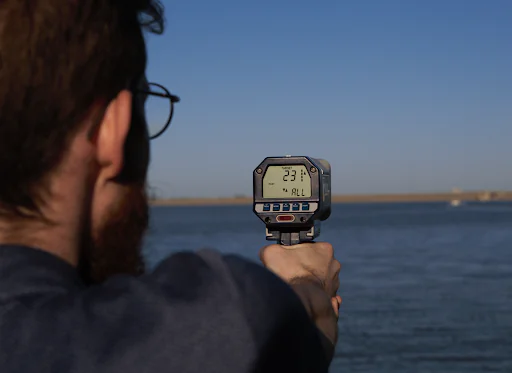In all types of law enforcement, officers face a multitude of threats in the course of carrying out their duties. The involvement of a body of water inherently multiplies the dangers officers face. Marine law enforcement agencies regularly face the challenges of working in and around water as they perform duties such as enforcing boating safety laws, investigating boating accidents, and conducting search and rescue operations.
When working in water in an emergency situation, the first few moments are crucial to an officer’s survival as the weight of the uniform and gear, once serving to protect the officer, now becomes an impediment. Proper preparation for these situations is important for all law enforcement professionals, and essential for marine law enforcement officers.
In order to ensure that your marine officers are fully prepared to do their job safely and effectively, the following are three important considerations for your agency.
1. Water Safety Training Designed for Law Enforcement
Generally speaking, law enforcement officers have varying degrees of confidence, skill, and experience in dealing with water-related situations. Sadly, stories of marine officers drowning in the line of duty are far too common. Many different organizations offer specialized water safety training focused on response, rescue, and survival tactics. Participants are trained to swim, tread water, and go through other drills wearing body armor and a simulated duty belt. Training helps officers learn how to get their duty belts off quickly, protect their guns inside their vests, use vests as flotation devices, and other life-saving tactics.
Rescues are not the only dangerous water situations officers encounter. They may be forced to pursue a suspect and deal with a struggle in the water. Some programs cover how to use defensive tactics in water, as well as practicing evasion drills and handgun retention. They learn to shoot from or under the water while following the same firearms safety principles they do on dry ground.
Individual states offer different types of water safety training programs that will prepare officers for situations specific to the unique considerations of the jurisdiction.
2. Marine Law Enforcement Training
The Marine Law Enforcement Training Program (MLETP) is a FLETA accredited course of training that provides basic marine law enforcement training for agencies and organizations involved in the specialized areas of marine regulation, protection, and law enforcement. The emphasis of the training is on the safe and proper operation of marine patrol vessels, with specific training in law enforcement operations. This includes training officers to overcome fear and panic so that they are capable of life-saving actions.
The Electronic Navigation Training Program (ENTP) introduces law officers to the principles of electronic navigation. Electronic navigation ensures safe passage in unfamiliar and unpredictable waters by identifying areas of low depth, as well as obstructions invisible from the surface. This technology not only ensures safe operation of vessels on the water but can help identify sunken vessels. The course covers the fundamentals used by vessel commanders or marine enforcement officers to utilize marine electronics to safely navigate during reduced visibility and in unfamiliar maritime areas of responsibilities. Officers become proficient with their agency specific electronics while determining position, direction, and distance problems.
3. Marine Law Enforcement Tools
The nature of situations marine enforcement officers encounter not only requires specialized skills and training, but specialized tools and equipment are also essential. Running RADAR is often the first step to investigating BUI/interdiction/further offenses, much as it is for road patrol. The speed is more often indicative of intoxication and irresponsible operation. In many cases, speeding also reveals a lack of basic required safety equipment, too many vessel occupants, or underage driving.
When marine law enforcement officers are tracking targets on the water, the Falcon Marine is an invaluable tool that’s designed specifically for the job. The Falcon Marine is a handheld RADAR gun that is designed for tracking moving targets on the water. This highly specialized tool tracks multiple targets, measures speed in both knots or mph and displays individual readings for approaching, receding, or bi-directional targets. It can track any target moving between 4 and 174 knots, with an accuracy ± 1 knot, making it the most accurate tool of its kind.
Make sure your marine division is fully equipped and prepared so that they will have every advantage. To learn more about how Kustom Signals can support your agency with reliable enforcement tools, contact us.

